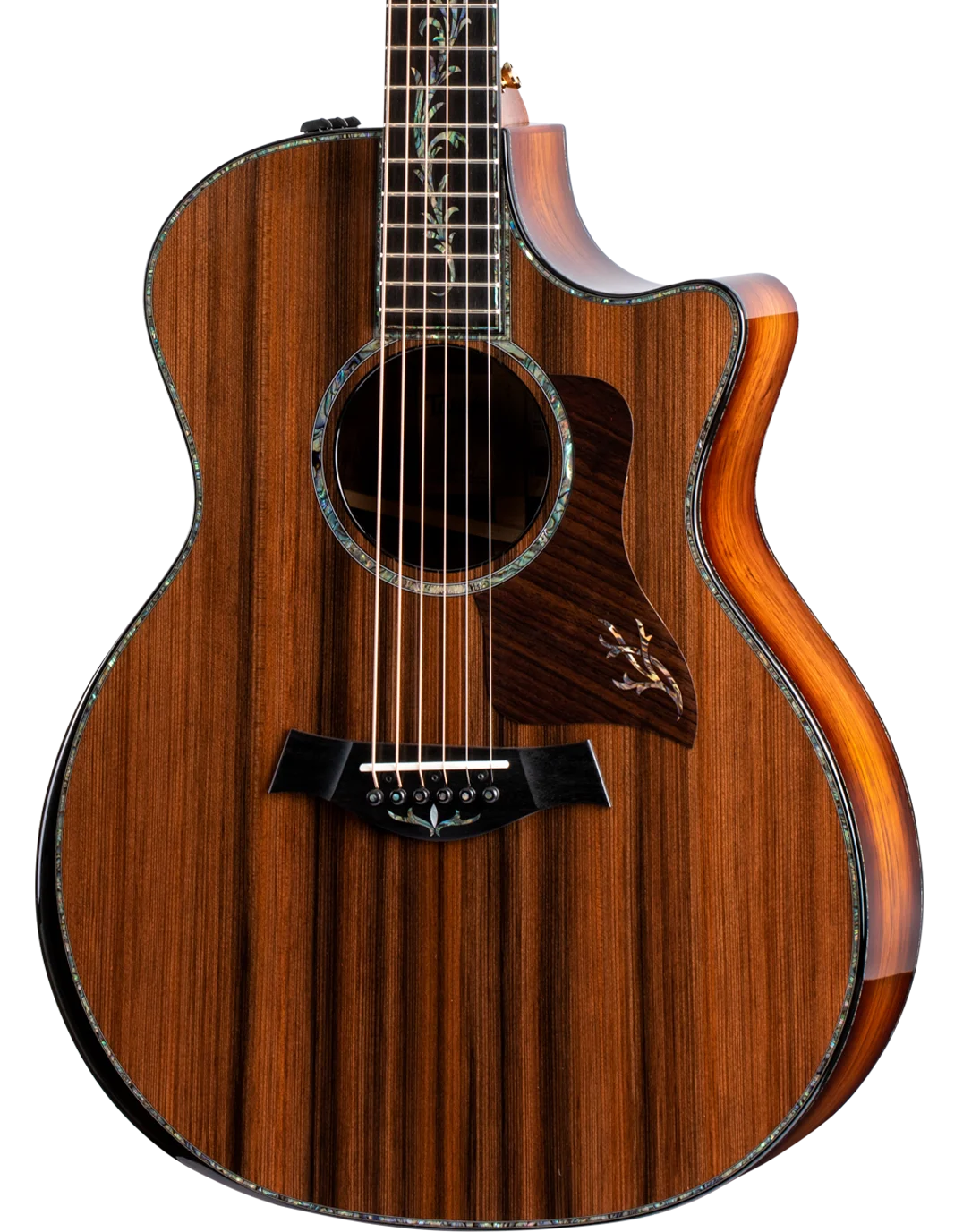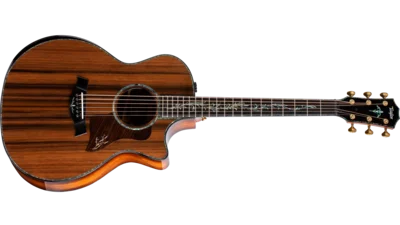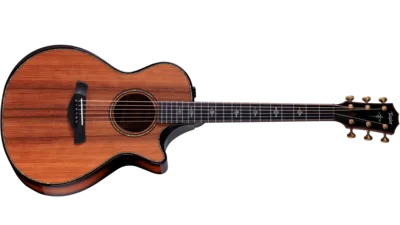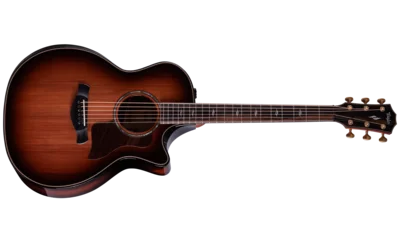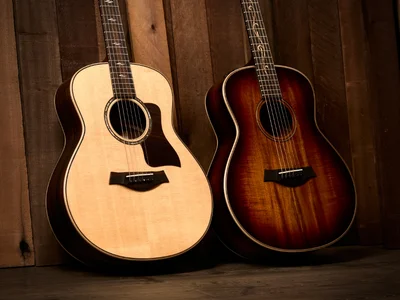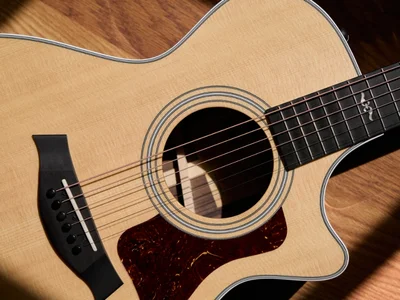
Guitar top woods fall into two general categories: hardwoods and softwoods. So what are softwoods and hardwoods, and what’s the difference between a softwood top and a hardwood top?
The unique acoustic properties of top woods help color a body shape’s fundamental sound. The key is to find the wood that matches up best with your playing style, like the warmth of a cedar top for fingerpicking and the feeling of responsiveness in your hands.
Explore All Acoustic Features
The type of wood used for a guitar’s soundboard has a major impact on its tonal properties.
Each acoustic series boasts a unique package of visual details that enhance the aesthetic appeal.
Our inspired proprietary pickups faithfully reproduce the natural nuances of a Taylor guitar’s voice.
Guitars with a unique musical personality, including 12-string, 12-fret, nylon, baritone and travel.
Taylor’s eco-friendly, UV-curable finishes protect your guitar and keep it looking and sounding great.
Bracing patterns, such as our new V-Class design, bring out each guitar’s unique voice.
Our patented neck design ensures superb intonation, playability, and lasting stability.
Our elegant cutaways add to a guitar’s shapeliness and broaden your playing range.
An armrest softens the edge of a guitar body to create a more comfortable playing experience.

























